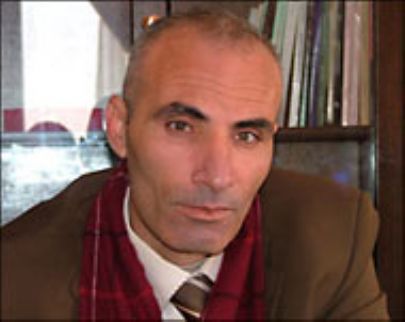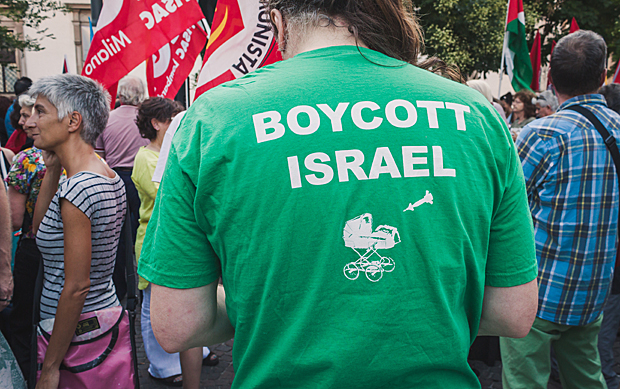7 Aug 2014 | News, Politics and Society, Religion and Culture
First, the inevitable throat clearing and hand wringing. The most recent conflict between Israel and Hamas has been beyond horrendous. As I type, the ceasefire is holding. Over 1,800 Palestinians have lost their lives, more than 300 of them children. Dozens of Israelis, mostly young conscript soldiers, are also dead. There is an enormous imbalance, in firepower and in defensive capability. Better men than I have gone mad attempting to imagine a way to stop this happening again. Even that statement, I realise, reads like a cop out, but a particular sense of despair looms over this latest manifestation of a war that is only ever dormant at best.
Some clearly feel that the horror has gone too far. Author Hari Kunzru, for example, has decided to join calls for a cultural boycott of Israel. Writing on his Facebook wall, Kunzru cited an op-ed in the Jerusalem Post which suggested the “dismantling” of Gaza and the “relocation” of its non-humanitarian population. Kunzru also cited “”the targeting of schools and hospitals, the picture of a child my son’s age being dug out of rubble that reduced me to helpless tears, the total disregard of the Netanyahu government for international laws and norms…” as signs that Israel was a country that had “lost its moral compass”.
This is notable not because Hari is a well-known figure in the arts world – there are enough of those willing to sign up to any cause that comes along, and more than enough already willing to tell us exactly what they think about Israel/Palestine, or Cuba, or any other issue to which sections of the left are drawn to, like particularly verbose moths to the flames of revolution, or, worse, the great unspecified “resistance”.
No, this is notable exactly because Hari Kunzru is not one of those people. Hari is thoughtful and unshowy. And Hari has actually put in real work for free speech. I recall, in 2012, scrabbling to find a local sympathetic lawyer who would represent Hari when he faced serious risk of prosecution for reading from the Satanic Verses at the Jaipur Literary Festival, in solidarity with Salman Rushdie. He has made himself available for organisations such as Index and English PEN well beyond the call of duty. So when someone such as Hari Kunzru identifies with a cultural boycott, it means we have to take the question seriously.
The concept of boycotts, and particularly cultural and academic boycotts, have for a long time been problematic for people engaged in the promotion of free expression. Most criticisms of censorship are based on a fundamental assumption that communication of ideas is, in and of itself, a good thing. Some vague belief abounds based loosely on the Hegelian triad of thesis, antithesis, synthesis.
This can sometimes sound naive, but it does lead to useful perspectives on any argument: 1) that there are entirely sincere, well-meaning people, who may hold views completely anathema to your own, and 2) following from that, in formulating any position on proscription of certain attitudes or beliefs, or people, one must imagine being on the wrong end of the argument – a kind of categorical imperative crossed with the “golden rule”, that can end up making the certainty of others unsettling.
Boycotters often carry that absolutism and conviction that brooks no argument: a simple righteousness anchored in the belief that their view of the world is so self-evidently correct that anyone who is unconvinced by them is either deviant or deficient.
Then there is always the question of who benefits from boycotts? And who is hurt? The traditional, free expression view on cultural boycotts is that they punish precisely the people who are most outward looking and also most likely to seek change in their own countries. Is it fair to punish the artists for the actions of the government, as we have seen with the cancellation of Israeli show The City at the Edinburgh Festival following protests by the Scottish Palestine Solidarity Campaign? Or to request that the UK Jewish Film Festival should ditch Israeli government funding before it can use a venue, as Kliburn’s Tricycle Theatre has, in the name, it says, of attempting to depoliticise the event?
It is argued that theatre companies, dance troupes etc are legitimate targets for boycott if they benefit from state funding, but in truth, there is hardly a theatre company in the civilised world that does not take funding from government agencies: indeed, most western liberals see state agency funding of arts as a sign, even a crucial part, of a healthy democracy, and it is rare that state-funded companies engage in Red-Army Choir style propaganda tours – though Venezuela’s Orquesta Sinfónica Simón Bolívar, decked out in baseball jackets in the colours of the national flag, can sometimes feel a little too Potemkin for comfort.
Writing on the subject (£) of anti-Israel boycotts back in 2012, Irish Times literary editor Fintan O’Toole drafted these five rules for artists and writers invited to perform in countries with dubious records:
1) Don’t take money, directly or indirectly, from governments that systematically abuse human rights, or from oligarchs who benefit from those abuses.
2) Give a significant part of your fee to human-rights defenders or oppressed artists in the relevant country.
3) Don’t accept any restrictions on your own freedom of expression when you’re in that country.
4) Don’t perform to audiences forcibly segregated on lines of race, gender or ethnicity.
5) Don’t let yourself be used for propaganda purposes.
This was very much the approach used by Sweden’s Loreen during and after the Eurovision Song Contest hosted by Azerbaijan in 2012. The singer made efforts to meet opposition figures and voice their concerns in press conferences and TV interviews, and was widely praised for it.
In fact, O’Toole’s rules are not a million miles from the boycott pledge signed by Hari Kunzru, which states: “We support the Palestinian struggle for freedom, justice and equality. In response to the call from Palestinian artists and cultural workers for a cultural boycott of Israel, we pledge to accept neither professional invitations to Israel, nor funding from any institution linked to its government until it complies with international law and universal principles of human rights.”, though there is a crucial difference in that the boycott statement punishes both state and non-state entities, thus preventing signatories from accepting invitations from, say, a hypothetical human rights group.
And this is the problem I will continue to have with boycotts against nations, particularly nations’ cultural endeavours. They seem too blunt, too broad and flawed. Even the much-cited cultural boycott against South African apartheid went awry, with the bizarre irony of Paul Simon being criticised for technically breaking the boycott by travelling to the country to work with Ladysmith Black Mambazo, the black acapella singing group that was far from a friend of the regime.
But the problem is that for many seeking to register their disgust at the actions of foreign governments, boycott seems the only option. Perhaps it’s time for those of us uncomfortable with the idea of shutting down free speech to figure out new avenues of expression.
This column was posted on August 7, 2014 at indexoncensorship.org
20 Jan 2014 | Middle East and North Africa, News, Palestine

The logo of the Al Qassam Brigade, the armed wing of Hamas
Last week, Hamas’ militant wing the Iz Al Din al Qassam Brigades announced via their website that their primary English-language Twitter account, @alqassamBrigade had been suspended. The group said : “The Qassam Brigades confirmed that they did not violate Twitter’s terms of service ever … Twitter still not sending Al Qassam any justifications for the suspension.”
When asked by Index why the account was suspended, a spokesperson from Twitter responded: “”We do not comment on individual accounts, for privacy and security reasons.”
Twitter’s decision to suspend the account becomes evermore confusing beyond this first glance. If the goal is to prevent Al Qassam from using Twitter, it’s ineffective, as their secondary English-language account as well as a primary Arabic account are both still active- not to mention the ease with which a new account can be created. It’s difficult to see what closing the account achieved other than giving a group that, by definition feeds off exclusion from the mainstream, fuel for pariah status.
Moreover, the timing of the decision appears to be somewhat out of the blue. If Twitter was truly concerned about inflammatory remarks, then they would have suspended the account back in November 2012, when Al Qassam and the Israeli Defence Force used Twitter to bait one another during the last Gaza war. This period set a new bar in terms of direct and hostile communication via Twitter, not just between Al Qassam and the IDF but also by their supporters. Objectionable though some of it may have been, Twitter never interfered with the fray.
Nonetheless, this particular corner of the Internet is constantly caught between the need that websites such as Twitter act as a transmitter of free speech, and the extreme pressure that it is subjected to by interest groups. On the 20 November 2012, “Christians for a United Israel” filed a petition with Twitter to close Al Qassam’s account, on the grounds that it counted as “material support” for an internationally recognised terrorist group, Hamas.
But as David Cole pointed out in a piece for the Daily Beast’s Open Zion blog at the time, the terms of what constitutes this “material support” are so broad as to be almost meaningless – and Gaza is filled with so many international products that it could be argued that Coca Cola, ExxonMobil and a large number of Israeli products that are regularly exported to Gaza are also supporting Gaza’s ruling Hamas party. Twitter is simply a conduit – as Cole points out, “Twitter is for all practical purposes a ‘common carrier’, providing its service to all comers. Would we hold a telephone company responsible for allowing a gang to use its phone lines to plan a crime, or the Postal Service responsible for delivering a package of drugs?”
The other curious element about this timing is that the suspension comes at a time when jihadist accounts are proliferating on Twitter, in Arabic and in English. Jihadist individuals and groups within Syria have increasingly taken to social media as a way to spread a message about their beliefs and intentions as part of Syria’s civil war. Individual members of Jabhat Al Nusra and increasingly ISIS have used Twitter as a means of provoking one another off the battlefield. While this may not be the official accounts of each group tweeting, it is not so different in content from anything that Al Qassam have tweeted recently. If Twitter were truly concerned about the content of Al Qassam’s account, then they would have been forced to close far more than just the one.
Terrorist groups using different forms of media to transmit their message to a wider public is nothing new. Complaining that Twitter helps terrorists talk to the public sounds as outdated as complaining that Al Jazeera broadcasted statements by Osama bin Laden: in this sense, the medium is not the message.
To consider the alternative for a moment: Gaza is not a haven for free media. Journalists of any nationality that operate on the ground there do so under heavy restrictions from a variety of parties. Beyond the day to day restrictions on their movement, speech and work, talking directly to the Al Qassam Brigades is almost impossible. Social media, while potentially a tool for propaganda, is one of the few ways that the wider public is able to know what is happening inside Al Qassam Brigades and Hamas. Cutting off this line further maligns part of a regime that uses this seclusion to its political advantage within Gaza, and allows Hamas to further clamp down on free speech within the Strip. In short: the content may be a strange development on Twitter, but its absence potentially has tangible effects for people on the ground.
This article was posted on 20 January 2014 at indexoncensorship.org
17 Jan 2014 | Middle East and North Africa, News, Palestine
 A leading Palestinian human rights activist has claimed that freedom of speech is far greater under the Hamas regime in Gaza than in the Fatah-controlled West Bank.
A leading Palestinian human rights activist has claimed that freedom of speech is far greater under the Hamas regime in Gaza than in the Fatah-controlled West Bank.
Khalil Abu Shamala, director of the al-Dameer Centre For Human Rights – which works in both Gaza and the West Bank – said that although there were still occasional arrests of Fatah members, “nowadays we don’t document many violations”.
He noted that this was partly down to Hamas’s weakness in the face of international pressures, particularly the breakdown of relations with the Egyptian regime.
In the past, Hamas has made large-scale arrests of journalists and called many others in for questioning, with opposition activists and bloggers facing harassment.
But although abuses still occurred in Gaza, Abu Shamala said that government forces in the Palestinian Authority–controlled West Bank took much harsher action against critics.
“Freedom of expression in Gaza is better than in the West Bank,” he told Index on Censorship. “We have many cases where the PA arrest and attack people because they criticize them on Facebook, and many Facebookers in the West Bank use alternative names, not their real names. But here, they speak without any harassment by Hamas.”
A rift between Hamas and Fatah, which culminated in the Islamist group seizing power in the Strip in 2007, has led to the creation of two near-separate entities in Gaza and the West Bank. Hamas refuses to recognise the Jewish state and is under an embargo by Israel and the international community.
“I don’t know why, but in the West Bank, Palestinian Authority security systems have cooperation and coordination with Israel – and they don’t want to give the opportunity for a third intifada, and they don’t want to allow Hamas or those who are against the Palestinian Authority [to speak out] because they know many of the Palestinians in the West Bank hate the Palestinian Authority,” Abu Shammala continued.
Hamas has previously issued proceedings against Abu Shamala for his outspoken criticism of the Islamist group.
“After they took over Gaza, they wanted from the beginning to impose their Islamic agenda on the society,” he said, adding that his organisations and others had tried to combat these efforts.
The Hamas deputy foreign minister, Ghazi Hamed, denies that his government took any action to silence their critics.
“We are not oppressing people and people can speak loudly, can criticise the government, can criticise Hamas,” said Hamed. “We never put anyone in jail who criticizes Hamas or write something against Hamas. We have different organisations, political parties, even writers, they have full freedom to write what they want.”
18 Nov 2013 | Palestine
A Palestinian news agency closed down in the Gaza Strip for allegedly fabricating reports regarding Hamas and their support for pro-Morsi Egyptian Islamist groups is to reopen after four months.
The decision to allow work once again at the offices of Ma’an News Agency, the largest independent TV, radio and online media group in the West Bank and Gaza Strip, was the result of a meeting between the Hamas leader President Haniyeh and those of Palestinian factions on Saturday. According to Khaled al-Batsh, leader of the Islamic Jihad Movement, the meeting was called by Haniyeh to deliberate issues in the Gaza Strip, including potential reconciliation among Palestinian political factions. The Palestinian president Mahmoud Abbas’s Fatah movement was not represented at the meeting.
A spokesman for Hamas, Ehab Ghissin, stated that Haniyeh “gave his instructions for the Ministry of Information to open the agency’s bureau” as long as Ma’an abides by professionalism and accuracy in its work.
The office of Ma’an was closed down in July after publishing reports suggesting Hamas was involved in supporting terror groups opposed to Egypt’s new regime. Citing Israeli sources the article stated the Hamas government gave refuge to fugitive leaders of the Egyptian Muslim Brotherhood in a Gaze hotel. After the meeting President Haniyeh spoke of the importance of a positive relationship between Egypt and Palestine, emphasising that Hamas is a national movement that does not depend on external organisations.
The decision to reopen the news office in Gaza was welcomed by Ma’an General Director, Raed Othman. “Ma’an aims to provide its media services to all Palestinians everywhere,” he said, adding that the news organisation will attempt to increase its activity in the area in the coming weeks.
The Saudi Arabian news channel Al-Arabiya was also shut down for the same reason and at the same time as Ma’an. Despite discussion during Saturday’s meeting to reopen Al-Arabiya too, the organisation remains closed in the Gaza Strip. The news channel has openly stated it was in favour of the removal of President Morsi from power.



 A leading Palestinian human rights activist has claimed that freedom of speech is far greater under the Hamas regime in Gaza than in the Fatah-controlled West Bank.
A leading Palestinian human rights activist has claimed that freedom of speech is far greater under the Hamas regime in Gaza than in the Fatah-controlled West Bank.